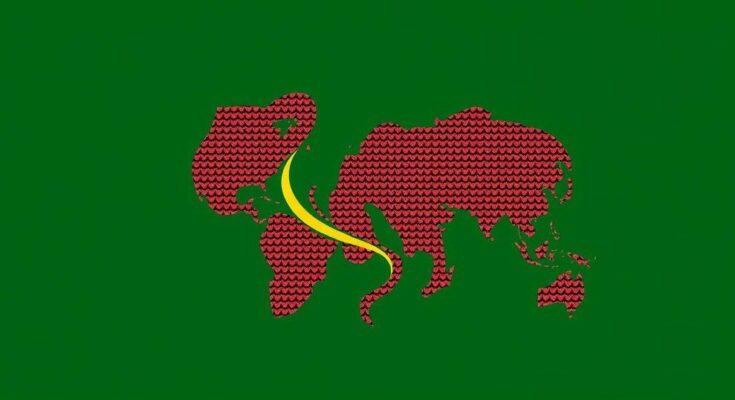Namibia’s elections on November 27, 2024, are poised to be the most competitive yet for the ruling SWAPO party, amid rising discontent among citizens, especially youth, over issues like corruption, economic inequality, and land reform. Vice President Netumbo Nandi-Ndaitwah faces strong contenders including former SWAPO member Panduleni Itula. This election may redefine Namibia’s political future in a region experiencing significant electoral change. The stakes are high as voters seek alternatives to SWAPO’s long-standing dominance.
As Namibia prepares for its presidential and parliamentary elections on November 27, 2024, political analysts anticipate the potential for significant change amid a wave of electoral shifts across Southern Africa. The ruling South West Africa People’s Organisation (SWAPO), in power since the country’s independence from apartheid South Africa in 1990, is facing unprecedented challenges. The political landscape has evolved, with new parties gaining traction, particularly among the disenchanted youth. Factors like economic instability, high unemployment, corruption, and calls for land reform fuel the urgency of these elections.
This year coincides with a regional trend where liberation parties, once seemingly unassailable, have faltered in neighboring countries. SWAPO experienced a decline in voter support during the last two elections, pointing to growing dissatisfaction with its governance. The historical context of Namibia’s struggle for independence adds complexity to the current electoral dynamics, as younger voters distance themselves from the liberation struggle narrative that once bolstered the party’s support.
The presidential race features several candidates, notably Vice President Netumbo Nandi-Ndaitwah, who is the first female contender from SWAPO and a favorite to win. Despite her strong background, Nandi-Ndaitwah’s campaign is hindered by public grievances regarding corruption and economic disparity. Other contenders include former SWAPO member Panduleni Itula, who gained notable support in the last election as an independent candidate, and McHenry Venaani, leader of the Popular Democratic Movement, along with Job Amupanda and Bernadus Swartbooi, who advocate for land reforms.
Voter turnout is particularly critical, with a significant portion of registered voters aged under 30. However, while opposition parties are attempting to capitalize on SWAPO’s vulnerabilities, their coordination remains weak, potentially allowing SWAPO to retain control.
Key issues influencing the elections encompass the economy and pervasive inequality, leading to widespread poverty and high unemployment rates, particularly among the youth. Corruption remains a contentious point for the electorate, with the 2019 “fish-rot scandal” leaving lasting repercussions. The unresolved housing crisis and unresolved land redistribution continue to resonate strongly within the electorate. With 21 parties vying for 96 parliamentary seats, the November 27 elections could redefine Namibia’s political future, making it essential for citizens to engage actively in the electoral process.
Namibia, characterized by its vast landscapes and low population density, is facing a critical turning point as it approaches its 2024 elections. The political stability previously associated with the ruling SWAPO party is being challenged by rising discontent among the population, particularly the youth, who are increasingly questioning the government’s handling of the economy and social inequalities. The backdrop of successful electoral shifts in neighboring countries adds to the urgency of these elections, with Namibians keenly aware of the shifting political tide in the region. The political landscape is marked by the emergence of new parties and independent candidates who aim to disrupt SWAPO’s longstanding dominance. The 2024 elections present an opportunity for voters to seek alternatives amidst the climate of corruption and demands for economic transformation. Understanding the unique challenges that Namibia faces, including poverty, unemployment, and land reform, is crucial to grasping the stakes involved in this election.
The upcoming elections in Namibia represent a crucial moment in the nation’s democratic evolution, as citizens grapple with the legacy of SWAPO’s governance and the pressing need for reform. The political participation of the youth could significantly influence the outcome, challenging established power dynamics. As various parties present their visions for a more equitable and prosperous Namibia, the election results will not only impact domestic politics but also reflect broader changes in the Southern African political landscape. The populace’s demands for accountability and transformation will play a vital role in shaping Namibia’s future.
Original Source: www.aljazeera.com




